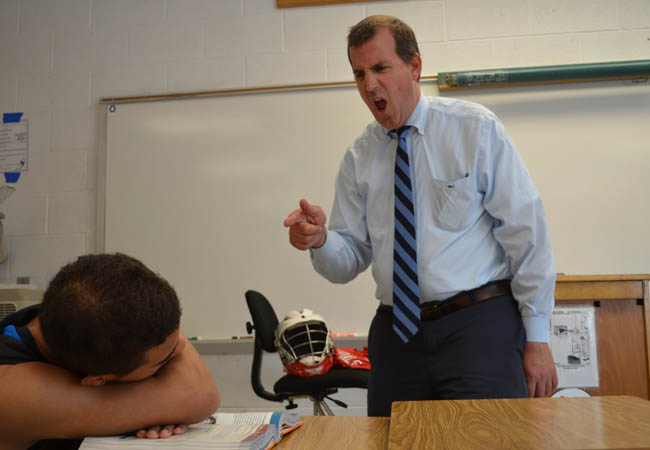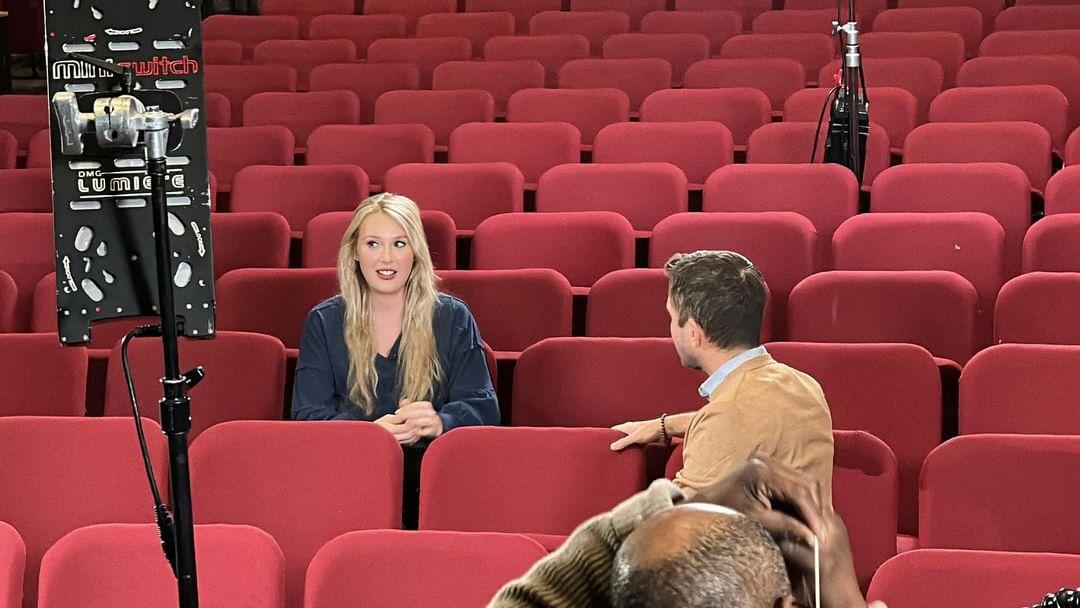As of June 8, the highly controversial “zero-tolerance” policy in FCPS may no longer be in existence due to a variety of changes being made to next year’s edition of the Student Rights and Responsibilities handbook.
The zero tolerance policy, according to the FCPS Discipline Process Reform, is described as “the policy or practice of automatic imposition of severe penalties for the first offence,” or “the absence of leniency of exception in the enforcement of a law, rule or regulation.”
“The current zero tolerance policy is very rigid. I do understand the purpose, but every circumstance does not fit this policy. There are always situations that need stiff consequences, but each situation deserves an investigation and discussion,” PTA President Kathy Ryan said.
Currently, the handbook, commonly referred to as the SRR calls for the expulsion of any student caught with an illegal drug, whether it is real or a look-alike. Between the years 2004 and 2010 alone, over five thousand cases were heard in the FCPS Hearing office that resulted in long- term suspension or expulsion due to the current Zero Tolerance, or ZT, policy.
“When a student is caught with drugs, they are automatically recommended for expulsion. We are stuck in a bind. There’s nothing we can do” Administrator Jamie Carayiannis said.
One of the most recognizable cases in regards to the ZT policy was that of Nick Stuban, a 15-year old Woodson student that was caught with K2, a look-alike to marijuana, in 2011. A football player and overall “model student,” Stuban’s life took a downward spiral between the stress of his consequences and everyday life.
Just days before his second hearing, Stuban took his life making himself the second student in only two years to commit suicide during the fallout of a disciplinary infraction in Fairfax, after that of Josh Anderson of South Lakes High School.
Another change considered, that also relates to Stuban’s case, in the SRR is that of “in loco parentis” which states that when a child is in school, the administration has the ability to act as the child’s parent.
“As an administrator, I have certain authorities to have some latitude to be able to work with kids on certain issues. In the SRR, it’s described as Principal’s Discretion. I would say that 95% of the stuff is through my discretion to discipline kids,” Carayiannis said.
According to the American Psychological Zero Tolerance Task Force “Zero tolerance policies in schools, intended to reduce school violence and behavior problems, can actually have the opposite effect.”
“I don’t think we should, as a school system, overreact to one isolated incident. I think we should brush this canvas with a broad brush and cover a large spectrum of students and situations rather than just a few,” Carayiannis said.
The Fairfax Zero Tolerance Reform cites that the current policy infringes upon a student’s protection of due process of law, as well as their first, fourth and 14th amendment rights. The reform also calls for a more “reasonable and humane” school system that offers consequences that are “appropriate to the infraction, to the child’s individual situation, and to the child’s developmental stage.”
“Many incidents that result in disciplinary action in school happen because of an adolescent’s or child’s poor judgment, not due to an intention to harm,” APA Task Force Chair Cecil Reynolds said. “Zero tolerance policies may exacerbate the normal challenges of adolescence and possibly punish a teenager more severely than warranted.”
The new SRR would also call for parental inclusion in the child’s punishment in terms of the parents receiving notification of their child’s infraction prior to any consequences being decided upon. On top of parental attendance to all meeting regarding the child’s punishments, the student must also be informed that they have the right to remain silent and to contact their parent or guardian before writing any confession.
On top of these changes, all meetings regarding the child’s punishments would be recorded for future reference when the student is on trial and these trials will be conducted as a much speedier pace, , no matter the severity of the crime, in hopes of preventing increased emotional strain on the suspect and his or her family.
“Changes to the zero tolerance policy would give school administrators, staff, students and parents better opportunities to get more effective solutions or resolutions to an occurrence. The ultimate goal is to get the appropriate help for the student and family,” Ryan said.
The next meeting will occur on Saturday June 8 at Luther Jackson Middle School and all are welcome to attend. The FCPS school board will also be discussing the changes in relation to the issue of suspension alternatives for the 2013-2014 Student Rights and Responsibilities handbook.
“Teenagers do not always make the best decisions, and second chances could help a student learn a great life lesson,” Ryan said.
“I want that latitude to be able to make decisions, other school districts have it, we should have it as well. Give me that power. Trust me. Trust; that’s part of the problem. I don’t believe there is 100 percent trust coming from the school board towards the schools and the administration. They don’t say ‘We trust your decisions, we value your decisions.’ I want that trust, I deserve that trust,” Carayiannis said.















